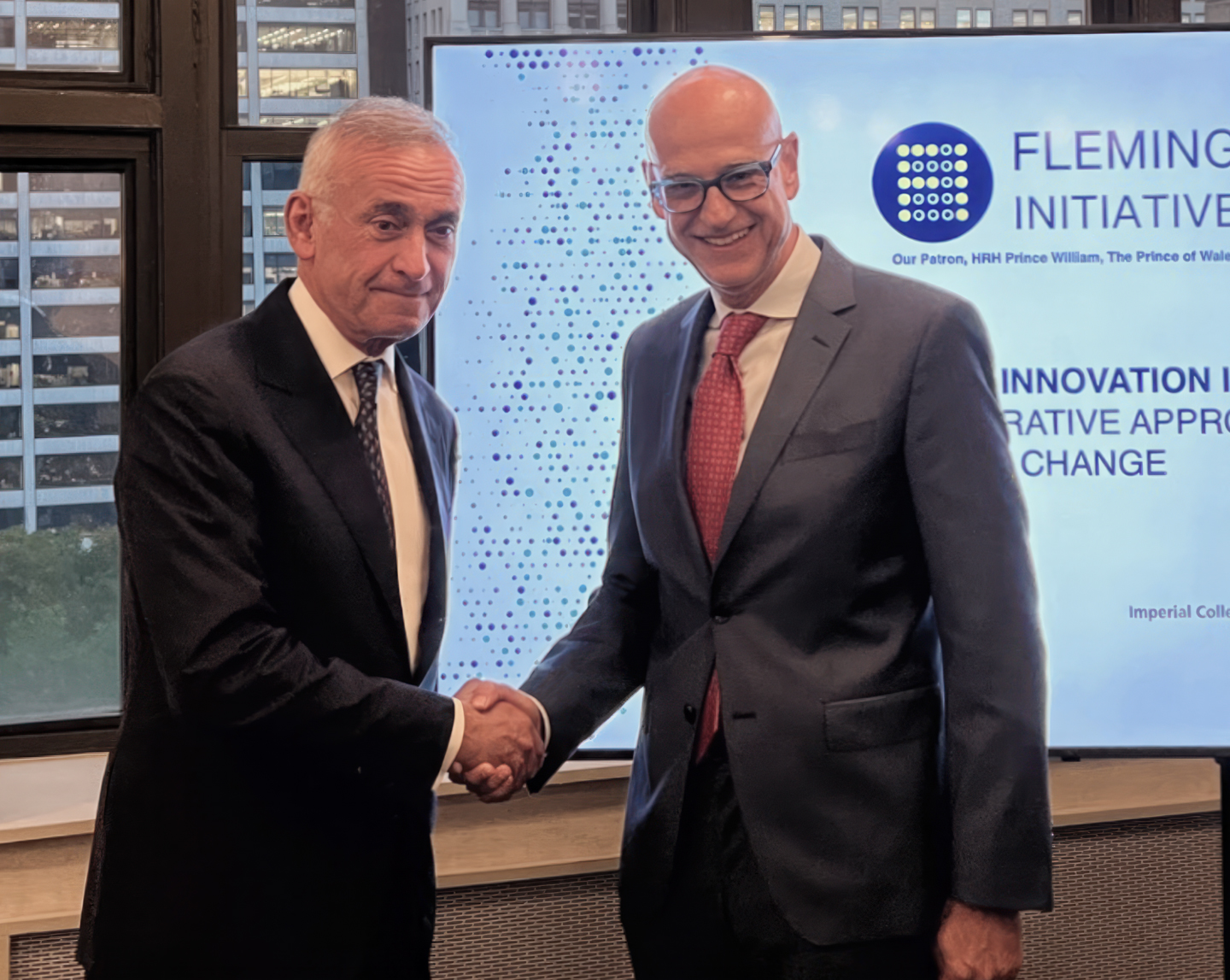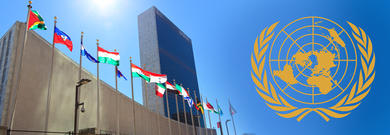6m Read
November 19, 2024
ANTIMICROBIAL STEWARDSHIP
Article
Fleming Initiative and Cepheid Announce Partnership to Tackle AMR
Lord Darzi: “Science alone is not going to be the solution. We need the whole world to come together, and the sum is much greater than its parts.”
William, Prince of Wales: “Last year, I became patron of the Fleming Initiative. The initiative's goal is to break down barriers, draw on diverse expertise, and drive positive global change to fight AMR.”
Lord Darzi: “Alexander Fleming's extraordinary discovery of penicillin at St. Mary's Hospital in Paddington transformed healthcare. We were delighted to announce GSK as the first founding partner for the Fleming Initiative, bringing their invaluable expertise and experience to help ensure collective action and protect generations to come.”
Dame Emma Walmsley: “This rising risk of superbugs definitely demands an urgent response, and what I love also is your ambition to go at this now at a global scale.”
Lord Darzi: “We are also proud to announce two new partnerships with the multinational diagnostics company Cepheid and the life sciences charity LifeArc.”
Vitor Rocha: “Together, and with other partners across science, technology, and policy, we have an opportunity to positively impact millions of patients. This effort aligns with our vision of a world where precision diagnostics play a pivotal role in combating infectious diseases everywhere.”
Dave Powell: “AMR is a highly complex area and one that can only be solved through a One Health approach. LifeArc is joining for precisely this reason, so that we can be part of the solution scientifically but also help to address some of those wider ecosystem challenges that we talked about before.”
Lord Darzi: “We've achieved so much in the past 12 months, but there is more work to be done in the Fleming Initiative's global fight against antimicrobial resistance. Our partnerships will enable us to develop new diagnostics, better understand links between antimicrobial resistance and climate change, and use AI to predict transmission.”
William, Prince of Wales: “It is clear that no one nation or sector can tackle AMR alone.”
Dame Sally Davies: “We really need to move now, or I predict that we will wake up too late unless we really up our game.”
Lord Darzi: “We are looking forward to building more innovative partnerships between researchers, industry, policymakers, and most importantly, the public. This is only the beginning. By founding programs around the world, starting with the Fleming Center in Paddington, London, on the site where penicillin was discovered, the Fleming Initiative will spark real-world solutions that bring an end to this global threat.”
AMR is on the UN’s global agenda. Exactly where it should be.
Antimicrobial resistance (AMR) is recognized by the World Health Organization as one of the top ten public health threats in the world. A study published in September in the Lancet1 found that resistance to antibiotics has led to over one million deaths each year since 1990 and is projected to total 39 million between 2025 and 2050. AMR occurs when microbes, including bacteria, viruses, fungi, and parasites, change over time and no longer respond to the drugs and treatments designed to kill them and prevent disease.
For only the second time in its history, the UN General Assembly (UNGA)2 met in September to address this global threat and protect humanity from falling into a post-antimicrobial era in which simple infections kill and routine surgery becomes too risky to perform.
The WHO at UNGA called for urgent, high-level action to address global scourge of antimicrobial resistance. “Antimicrobial resistance threatens a century of medical progress and could return us to the pre-antibiotic era, where infections that are treatable today could become a death sentence,” said Dr. Tedros Adhanom Ghebreyesus, WHO Director-General, who addressed the high-level meeting on AMR. “This is a threat for all countries at all income levels, which is why a strong, accelerated and well-coordinated global response is needed urgently.”3

Cepheid representative Ammar Qadan, SVP, Market Access & Government Affairs, and Lord Darzi, Executive Chair of the Fleming Initiative
Cepheid Partnering with the Fleming Initiative to Tackle AMR
Cepheid and the Fleming Initiative announced a new partnership at an event aligned with the recent UNGA high-level meeting on AMR in New York City. Cepheid is the first diagnostics company to partner with the Fleming Initiative, a global collaboration led by Imperial College Healthcare NHS Trust and Imperial College London to tackle AMR globally. “Accurate diagnostics are at the frontline of the battle to eliminate preventative antibiotic use. Every one of us can help reduce unnecessary antibiotic use by requesting an accurate diagnostic test to identify the source of an infection before we begin a course of antibiotics,” said Vitor Rocha, President of Cepheid.
“I believe we must set a bold new target: by 2030 no antibiotic should be prescribed without a proper diagnosis that identifies the underlying cause as bacterial infection,” said Professor the Lord Darzi of Denham, Executive Chair of the Fleming Initiative. “I would love to see a world in my lifetime in which no antibiotic could be prescribed without a diagnostic test and that diagnostic test has to be quick and available.”4 He outlines the urgency and effort needed in the fight against AMR in this article published in The Economist, “Why antibiotic resistance could be deadlier than cancer.”
Focus Areas for the Fleming-Cepheid Partnership
This partnership will bring research, behavior change, public engagement, and policy together to provide real-world solutions to a global problem. It will be critical in driving global action in the fight against AMR.
Specifically, it will focus on strengthening and expanding the use of in vitro diagnostics to support antimicrobial stewardship programs to enable responsible antibiotic use and control the rise of resistant infections. It will encourage active screening for earlier detection of critical infections and colonization, implement community-based acute respiratory infection testing and care to provide decentralized diagnostic and treatment pathways, and accelerate a precision medicine approach for sepsis.
Read the full press release announcing the partnership to combat AMR: link
References:
- Global burden of bacterial antimicrobial resistance 1990–2021: a systematic analysis with forecasts to 2050. Accessed Sept, 2024. Naghavi, Mohsen et al. The Lancet, Volume 404, Issue 10459, 1199 - 1226 https://www.thelancet.com/journals/lancet/article/PIIS0140-6736(24)01867-1/fulltext
- UN General Assembly High-Level Meeting on antimicrobial resistance 2024 https://www.who.int/news-room/events/detail/2024/09/26/default-calendar/un-general-assembly-high-level-meeting-on-antimicrobial-resistance-2024
- WHO at UNGA: Call for urgent, high-level action to address global scourge of antimicrobial resistance https://www.who.int/news/item/19-09-2024-who-at-unga-call-for-urgent--high-level-action-to-address-global-scourge-of-antimicrobial-resistance
- Diagnostic tests are missing link in solving superbug deaths https://www.bloomberg.com/news/articles/2024-09-24/diagnostic-tests-are-missing-link-in-solving-superbug-deaths
Read Next
MORE








